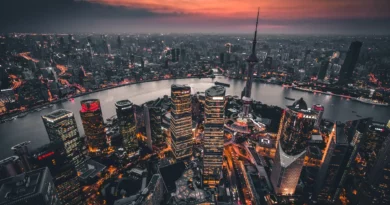Influenza 2023, symptoms, prevention and when the peak will be
The flu is slow to show itself in this atypically warm autumn, but it is not absent.
The flu season is approaching slowly and with new dangers, such as the tridemia alert in children.
The first example of widespread influenza in our country, with the arrival of the first cold weather, was intestinal flu which caused a boom in cases.
If, however, we look at the flu as a respiratory disease (nose-throat-lung), although late compared to the average of previous years, it is not certain that the peak will not arrive in the next few weeks.
According to Fabrizio Pregliasco, virologist at the University of Milan, it is likely that the peak will arrive between the Christmas holidays.
What should we expect? The symptoms are now well known, but it is possible to prevent contagion and not get sick.
Influenza 2023-2024 What is the flu? What are the symptoms? How to prevent contagion? When will there be the peak of sick people? What is the flu? Respiratory flu is caused by a virus that affects the airways (nose, throat and lungs).
It is an endemic virus that appears in the cold season (between autumn and winter).
In Italy the peak occurs between December and the end of February, but this year higher temperatures could slow the onset of the flu and delay the peak.
Influenza is therefore a viral infection of the airways, caused by different viruses with great ability to mutate, which is why they present slightly different characteristics every year.
The viruses responsible belong to the Ortomyxoviridiae family and cause respectively type A influenza (most common), type B and the not very common type C.
read also Tridemia alert in children, what it is and advice from paediatricians What are the symptoms ? The flu most often presents with mild symptoms, but there are also serious symptoms typical of some types of virus or fragile category affected.
Among the most common symptoms we find: cough sneezing sore throat watery eyes chills fever headache muscle pain tiredness general malaise Every year, however, the flu presents itself with some small changes in the symptoms, due precisely to the high ability of the viruses that cause the disease to mutate respiratory.
The combination of symptoms, in the most severe symptomatic forms, can lead to: high fever (38°-40° for 2-3 days) headache bone pain dry cough and chest pain Less common symptoms, but which can occur together with the others and aggravate the picture are: conjunctivitis photophobia nausea vomiting diarrhea The symptoms have a variable persistence, between 3-4 days to a week or little more (within 2 weeks).
Even after the acute phase of the disease is over, some symptoms may persist, such as weakness or a cold.
How to prevent contagion? Prevention is made up of many small protective actions.
Starting from keeping your immune system capable of responding to attacks, for example with a correct and balanced diet, up to respecting hygiene standards.
In particular, avoiding contact with people with the flu guarantees the absence of contagion, but when this is not possible, practices similar to those adopted to avoid contagion of the coronavirus can be implemented: ventilate the rooms, do not bring your hands into contact with your eyes, nose and mouth avoid crowded public places unless you have a mask.
In addition to daily advice, vaccination is fundamental.
The most effective way for other than influenza is in fact the vaccine (trivalent vaccine) which could from the main influenza viruses.
read also Flu vaccine 2023-2024: when should it be done, to whom is it recommended and how much does it cost When will there be a peak in the number of sick people? Even if late, it is mathematical that the flu will arrive.
This was confirmed by Francesco Vairo, head of the Regional Service for Epidemiology, Surveillance and Control of Infectious Diseases of the Lazzaro Spallanzani Institute in Rome, according to which "compared to last year, where in this period there was already significant activity of the influenza virus , this year, probably thanks to the temperatures, we are still observing quite limited activity".
We won't have to wait long for the peak, according to Fabrizio Pregliasco, virologist at the University of Milan, in fact it is likely that it will arrive between the Christmas holidays thanks to travel, kisses and hugs.




